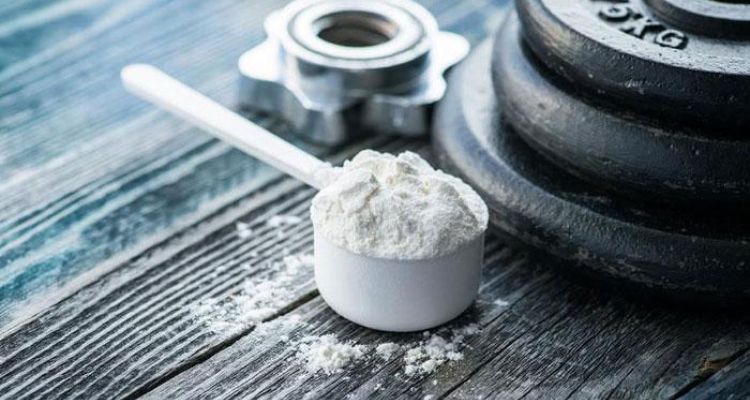Creatine is a famous sports supplement that has been in use for a long time. The amino acid-derived molecule works wonders for people looking to increase their performance and add muscle to their lean bodies.
High energy-intensive workouts or laborious sports can ask for an extra dose of energy and achievement. For this reason, creatine formulas have been the best purchase in the industry.
The question is whether this energy-boosting supplement is good to use before bed. As sleep regenerates your tired body, it has to be the most calming and peaceful experience (also check 10 mattresses with great comfort). Will it impact your sleep in any positive way or not?
Let us discuss the answer to this question here.
Why Do We Take Creatine?
A lifeless and lethargic body is frequently not liked by yourself when you do something adventurous. This is because you have become the victim of having a weak metabolism. Creatine is an excellent solution for a fatigued body as it is the energy booster that your body needs. It’s one of the safest energy rejuvenating compounds which can grant numerous benefits.

When we take creatine, our bodies convert it to creatine phosphate. It strengthens the muscles, provides extra energy for vigorous exercise, and enhances the functioning of your muscles.
Moreover, creatine increases power and speeds up muscle recovery after exercise. People take creatine to amplify the functioning of the brain. Good results are visible when taken to fight diabetes and heal neurological diseases.
This muscle surge may aid athletes in a burst of agility and speed, especially during high-intensity activity. As an outcome, it generates greater ATP giving life to the muscle.
When To Take Creatine?
There is no official time to take creatine. It is a stimulant for your fragile body to regain its energy.
Taking a creatine supplement improves both muscular strength and the body. Utilizing it even after a workout can be advantageous since exercise increases blood circulation, which makes it easier for cells to absorb creatine. However, you can consume it whenever you want. It will probably be rewarding to take it right before your workout.
How To Take Creatine?
Creatine supplements that come in powder form are available for use. By mixing the powder with juice or water, you can ingest it. Keep yourself hydrated. If you are new to creatine intake, begin it with a loading dose. Initiate the loading dose for 4-5 days of about 4-5 gm. Then take 3-5 gm daily for proper maintenance. Creatine monohydrate is the most effective version of creatine.
Most athletes take 20-25 gm later reduced to 2-5 gm. You can take creatine through proteins like fish and meat. There is a natural production of 1-2 gm per day by your body using amino acids.
Benefits of Taking Creatine Before Bed
Increased Energy Production in The Muscle Cell
Creatine composition is very similar to the amino acids that make up naturally occurring metabolic compounds in our body, creatinine phosphate. It is abundant in muscle cells and only in trace amounts in the testes and brain. Our muscles perform the majority of the work.
They require large amounts of continuous energy production to function efficiently without going sore or tired. Creatinine phosphate in the muscles is one of the sources metabolized to produce ATP, the energy currency of our cells.
Harvested by the body naturally and present in food to replenish its stores. Supplemental creatine helps to boost this substance’s levels even more.

It Boosts the Anabolic Muscle-Building Environment.
Creatine favors anabolic metabolism, less breakdown, and more repair and growth. Research states that it promotes the release of hormones and cellular signaling pathways that help increase muscle mass.
The myocytes, cells that make up the muscle, undergo progressive development and mitosis, which help to bulk up the muscles. It lessens the breakdown of proteins while favoring repair and new growth. This way, the body can perform an increased load workout effectively. Creatine hydrates the muscle cells, presenting them as voluminous and enlarged.
Creatine Improves Neurological Disease States
Progressive diseases like Parkinson’s and Alzheimer’s or trauma to motor neurons and the spinal cord can bring about restrictions in daily activities that are hard to tackle. The brain is a vital organ for coordination and control.
It is an area that requires high levels of energy and oxygen. It is because of this that creatine can help improve cell function. Studies show that taking creatine can help relieve symptoms and slow down the progression of severity and symptoms of such diseases. Its growth-boosting capabilities aid in rejuvenating the brain cells, thus helping out these patients.
Creatine Is One of Our Most Potent Antioxidants
Prolonged periods of exercise can produce reactive free radicals that are damaging to the muscle cells. Their accumulation can be toxic to the cellular DNA, hindering its growth and survival. Creatine not only stimulates growth but can act as a powerful antioxidant. It deactivates the free radicals before they can cause any harm.
Reduction in oxidative stress hastens recovery. It toughens the cell membrane and keeps it safe from such damage. This way, exercise-induced cramping, and soreness are held in check.
Side Effects of Taking Creatine Before Bed
Creatinine is a substance that is biologically present and synthesized in our bodies. Therefore, it is abundant in protein-based diets to nourish extra stores for intense workouts when required.
Creatine formulas and supplements have been in use for quite a long time and haven’t reported any dangerous side effects.
Kidney Damage and Stones:
The kidneys excrete the creatinine phosphate naturally occurring in our body. It avoids its buildup as it can be toxic in the bloodstream. Supplementing creatine will increase the amount of this metabolite in the blood. That means pressure on the kidneys to remove it all.
This might lead to kidney damage, especially in people whose kidneys are already chronically damaged, as it will lead to more strain. Too much of it might lead to its precipitation as stones, aggravating the damage.
But if the individual is healthy and the dosing is as per standard, these complications are highly unlikely.
Liver Damage:
Short-term, low-dose use of creatine supplements does not harm the liver. However, using creatine for longer than six months is not advised due to the possibility of liver malfunction or injury. Additionally, long-term supplement use can prevent the liver from producing creatine.
Those with a liver illness should stay away from creatine supplementation. Natural creatine levels are decreased by liver disease, and supplementing with creatine may further diminish the liver’s capacity to make and use creatine.
Chronic renal failure and other severe side effects may potentially occur if the normal metabolism of creatine tablets impairs by weakened liver function.
Weight Gain:
It aims to increase muscle mass and enhance bulk; weight gain is likely to occur. As you develop those big voluminous muscles, you will sure feel heavy. It can be due to the water load in the cells. This might be a problem for people applying to different weight category sports.
Bloating:
Taking too much creatine might cause absorption problems leading to bloating, nausea, and an irritated bowel. Such solutions are best taken with fruits, starches, and fibers to promote improved absorption into the gut.
Dehydration:
Muscle tissue tends to retain more water as a result of creatine consumption. It could cause dehydration as strenuous exercise results in significant perspiration. If you consume creatine, it’s crucial to drink plenty of water to remain hydrated and healthy.
Reasons Why You Can Take Creatine Before Bed
It Is Not a Stimulant
Creatinine is not a stimulant compared to other energy drive substances such as caffeine. As a result, it will not make you energized or alert. It will not harm your sleep nor activate your CNS during your sleep periods.

It Can Lessen the Negative Effects of Sleep Deprivation
Sleep deprivation is nowadays common amongst youngsters. The stress of exams, tedious tasks, or babysitting a crying child. All these destroy your proper sleep periods and make you sleep-deprived. You may suffer from a weary mind and dull throughout the day.
Creatinine is not just an energy stabilizer but also lightens your mood and improves the equilibrium of the body. You can stay active even after 24 hours of sleep deprivation.
It May Reduce the Amount of Sleep Needed After Sleep Deprivation
Sleep deprivation causes people to suffer from long-term adverse effects. If you are not getting enough sleep, your body will not execute well.
Creatine can be your good partner if you are a patient with insomnia or suffer from sleep deprivation periods. It means you no longer need to sleep for longer hours and stay fresh (also check 10 amazing mattresses for athletes). Creatine consumption compensates for the required sleep for the healthy functioning of the brain.
Taking It with Milk May Promote Sleep
Creatine works well in combination with milk. You can reap all of its rewards because it absorbs better with milk. It can cut the loading phase of taking creatine supplements to 2-3 days. If you want a calorie-rich diet besides taking creatine, individuals can benefit from the surplus calories of milk.
Your body can welcome more micronutrients as milk is an excellent source of calcium. It can be your survivor tool for weakening bones and promoting better sleep. Creatine with milk will maintain your protein and carbohydrate metabolism.
How To Take Creatine Before Bed
After taking a meal, with the help of digestion, your body metabolizes it and produces energy for later use. Consuming creatinine before bed will assist in absorbing nutrients and prepares the body for post-workout sessions.
You can take creatine with milk, do not take a dry scoop. If you are allergic to milk or lactose intolerant, take it with water because it is a safe and widely used universal solvent.
Key Takeaways: Understanding Creatine Before Bed
Overview of Creatine
Creatine is a well-known sports supplement derived from amino acids, primarily used for enhancing athletic performance and building muscle. Due to its energy-boosting properties, creatine is a popular choice among those engaged in high-intensity workouts and sports.
The Role of Creatine
Creatine helps combat lethargy by boosting energy levels. When consumed, our body transforms it into creatine phosphate, strengthening muscles, and providing additional energy. This supplement not only aids muscle recovery after strenuous activities but also benefits brain function and can be effective against diseases like diabetes and certain neurological disorders. By generating more ATP, creatine further invigorates muscles, especially during high-intensity tasks.
Recommended Creatine Consumption
While there’s no universally accepted time for creatine intake, it often proves beneficial pre- or post-workout. Its assimilation is enhanced post-exercise due to increased blood circulation. Typically, creatine supplements come in powder form, mixed with juice or water. For those new to its consumption, a loading phase is suggested, followed by a maintenance dose. Natural sources include meats and fish, with the body also producing a small amount daily.
Benefits of Nightly Creatine Intake
Consuming creatine before bedtime offers multiple benefits, including an amplified anabolic environment promoting muscle growth, mitigation of neurological disease symptoms, and acting as a potent antioxidant. Creatine’s antioxidant properties neutralize damaging free radicals, reducing oxidative stress and promoting faster recovery. Moreover, its intake at night doesn’t disrupt sleep as it’s not a stimulant. It can even counteract the effects of sleep deprivation, potentially reducing the amount of rest needed after inadequate sleep. When combined with milk, creatine absorption is enhanced, potentially promoting better sleep.
Potential Side Effects
Despite its benefits, creatine supplementation isn’t without concerns. Prolonged intake might strain the kidneys, leading to potential damage or the formation of kidney stones. While short-term usage doesn’t impact the liver, long-term consumption might impede its function. Other side effects include potential weight gain due to increased muscle mass, bloating, and dehydration from heightened water retention in muscle tissues.
Conclusion:
In a competitive world, everyone is scrambling to obtain a miraculous drug that will instantly give them a rock-hard body and flawless abs. Creatine does the job here for them. Apart from this, it can be a good remedy for sleep too (also check 10 great mattresses for bodybuilders).
Its long-term benefits boost energy to build the body and regenerate the mind by encouraging healthy sleep.
Intake creatine in the right amounts to power your weak body. Always look out for your needs and remember nothing is better than a healthy body.
Creatine before bed FAQs
When Is the Best Time to Take Creatine?
Pre- or post-workout are the optimum times to take creatine. Take creatine 30 minutes before your workout. When engaging in high-intensity activity, creatine can assist get you ready for big spurts of energy. You can fill your muscles quite as effectively to achieve your fitness goals.
Why Should I Take Creatine?
Creatine supplements enable cells to absorb as much creatine as possible. It’s an energy generator as there will be no resistance if you wish to do cardio or any other vigorous exercise. Extra ATPs can save your day.
How Much Creatine Should I Take?
Take the controlled amounts of creatine. The recommended dose is 3-5 grams.
Does Taking Creatine Affect Your Sleep?
Yes, your sleep can be better and fewer hours of sleep can fulfill your need. You can save yourself from sleep deprivation.

